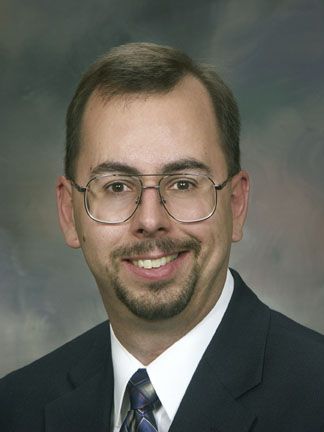Guest opinion: Fort Collins land-use-code decisions impact Fort Collins-Loveland Water District customers
Most people wake up in the morning, turn on their taps to drink a glass of water or shower without a second thought about where their water comes from. It’s been our mission at the Fort Collins-Loveland Water District for more than 60 years to supply high-quality, reliable and affordable water, and we are committed to fulfilling this mission for generations to come.
Planning for our future is a complex, strategic undertaking and a critical focus for FLCWD. Recent land use code updates by the city of Fort Collins have significant impacts on the future of FCLWD, and we recommend customers understand the significance — not only for our district but for them personally.

FCLWD serves 60 square miles across five jurisdictions: Fort Collins, Loveland, Timnath, Windsor and Larimer County. Our customer population is more than 63,000 and growing with almost half residing within Fort Collins. Density and type of growth are dictated by land use code, and FCLWD has little input into what developers can build — we simply react and adjust our plans accordingly.
SPONSORED CONTENT
Exploring & expressing grief
Support groups and events, as well as creative therapies and professional counseling, are all ways in which Pathways supports individuals dealing with grief and loss.
Our planning process evaluates current supply and infrastructure, identifies potential risks and develops strategies to meet growth sustainably for the next 40+ years. As housing attainability and affordability become more pressing topics, city planners look to change the land use code to promote higher densities and housing diversity. These changes prompt us to adjust our water supply and infrastructure plans.
FCLWD staff members are agile and can adapt to account for these changes in density. However, higher density can shift the location and timing of infrastructure upgrades and are a challenge in already crowded right-of-way corridors. Recently passed 1041 regulations in Fort Collins will add permitting costs to projects in new or existing easements. This includes temporary construction easements used to limit the impacts of construction projects. We face a tough choice between paying 1041 permitting fees or requesting full closure of a road to conduct projects safely.
The city of Fort Collins is planning to implement a new article in the land use code for a “water adequacy determination” of new development. This is an opportunity for city planners to enforce and protect the service area boundaries of FCLWD and other providers such as Fort Collins Utilities and East Larimer County Water District.
With limited water supplies and increasing costs, developers are looking at ways to provide water for their projects as an alternative to established providers. FCLWD is adamant about remaining the sole provider in our service area. If other water providers come into an established district boundary, the quality and reliability customers have come to expect aren’t guaranteed.
To secure an adequate water supply for the future, FCLWD is a strong advocate for the Northern Integrated Supply Project (NISP), led by Northern Water. Currently, a significant portion of FCLWD’s water supply comes from the Colorado-Big Thompson project, sourced from the Colorado River Basin. FCLWD is ahead of growth in supply, even during extended droughts. However, as growth accelerates and the reliability of current sources becomes more uncertain, we are diligently working to acquire additional supplies. These sources also need storage to make them available year-round. NISP will provide storage and supplies for the 32,000+ residents in south Fort Collins’ Districts 3 and 4 and ensure reliable water for generations.
Looking 40 years into the future isn’t easy, but we are constantly assessing growth patterns to anticipate future needs to continue serving customers affordably and reliably. Water impacts all our lives and must be a collaborative effort. It’s critical that water providers, city officials, and the public not only work together but also work for the greater good.
Chris Pletcher is the general manager of the Fort Collins-Loveland Water District.

